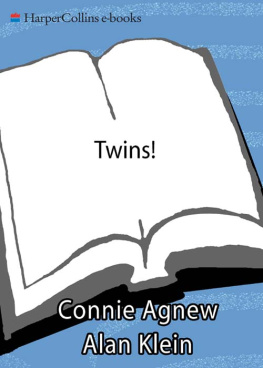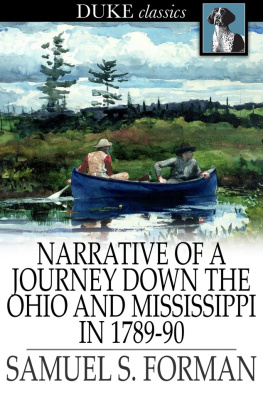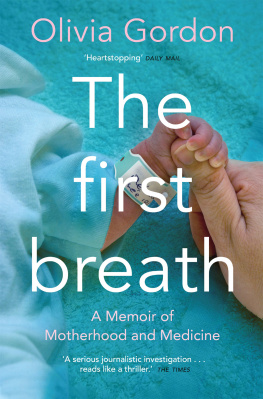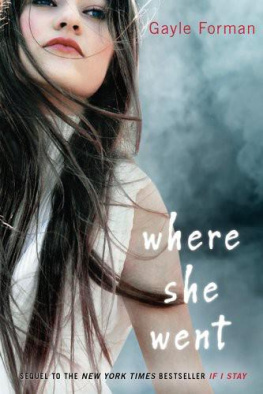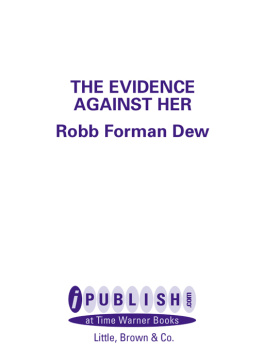Copyright 2009 by Vicki Forman
Foreword copyright 2009 Tom Bissell
ALL RIGHTS RESERVED
For information about permission to reproduce selections
from this book, write to Permissions, Houghton Mifflin Harcourt
Publishing Company, 215 Park Avenue South, New York, New York 10003.
www.hmhbooks.com
Library of Congress Cataloging-in-Publication Data
Forman, Vicki.
A memoir of premature motherhood / Vicki Forman.
p. cm.(This lovely life)
ISBN 978-0-547-23275-1
1. Premature infantsCare. 2. Premature infantsDevelopment.
3. Forman, Vicki. 4. MothersUnited StatesBiography.
I. Title.
RJ250.3.F67 2009
618.92'011dc22 2008053285
Book design by Melissa Lotfy
Printed in the United States of America
DOC 10 9 8 7 6 5 4 3 2 1
Portions of This Lovely Life first appeared in the Santa Monica Review
and Love You to Pieces: Creative Writers on Raising a Child with Special Needs,
ed. Suzanne Kamata (Boston: Beacon Press, 2008).
IN THIS BOOK, THE AUTHOR HAS GIVEN ALL DOCTORS, NURSES,
AND OTHER PROFESSIONALS FICTITIOUS NAMES.
A Foreword to This Lovely Life
THIS IS A STORY about children born into circumstances that medicine cannot currently prevent and parents cannot possibly prepare for. It begins with a scene of almost unendurable horror. When the worst (one assumes) has passed, the reader awaits the various authorial balms, tonal coolants, and narrative stand-downs demanded by such a trauma-splashed opening. But the reader quickly staggers into another, even more intimate horror, and then another, and then another. A tiny, cherished hope that things will eventually improve for the author, Vicki Forman, and her increasingly devastated family somehow endures. Such a hope is repeatedly incinerated in reality's unforgiving atmosphere. By the end, the long-delayed first steps of a five-year-old child will seem the fist-pumping stuff of a more traditional triumph narrative. And yet This Lovely Life is not at all depressing. Rather, when I finished this book, I felt an electric, wide-awake sadness, as though I had lost a close friend and made a new one on the same day.
In judging this contest I had the pleasure of reading several excellent books, among them a pair of skillful and funny essay collections, a spooky and affecting memoir about life in a convent, and an impressive travel narrative of a decades-old journey through a Middle East that scarcely seems recognizable today. All of these books struck me as both eminently publishable and promisingly vendible. That American publishing (an industry I normally defend, having spent the majority of my twenties in various editorial capacities) has not yet embraced the talented authors of these books can only be an oversightone, I hope, that will soon be rectified. But of all the books I read, only This Lovely Life moved me to read aloud sections to friends and sent me back to its beginning once it had ended. It was also the only book capable of usefully complicating what I thought I believed about the sanctity of life and the altogether different sanctity of death. This Lovely Life forced me to think about not only my responsibility to my fellow human beings but also what can reasonably be asked of a society's members when they are dealing with stunted lives that, for the rest of the community, are only abstractions.
Within her memoir's first few pages, Ms. Forman makes a painful, understandable, and yet still shocking decision about the lives of her imperfectly born children. This decision, for various reasons, is not allowed to stand. Because one parent is not granted autonomy, a tragedy involving a single family soon becomes an ever-widening gyre, pulling into it dozens of doctors, nurses, relatives, strangers, and other parents and children. Some of these people are helpful, but many are useless. Some are thoughtless, while others are lovely.
Throughout the book, readers will encounter a number of new words and phrases, among them adverse neurodevelopmen-tal outcome, extubate, and periventricular hemorrhage. Forman, the daughter of a doctor, manages to use these terms clearly and convey fairly and concisely the importance of the medical decisions she is forced to make. She does not claim that she was always correct; she sometimes expresses anger at certain doctors, and she occasionally behaves in ways that some readers may find appalling. But just as this is not a depressing book, it also is not an angry book. It is a book filled with love and wonderenriched by the kind of grief that those of us who are not parents cannot imagine and that those of us who are will not want to.
Forman, it seems to me, is a nearly ideal writer: tough-mindedly aware of her flaws, deeply intelligent, terrifyingly honest, skeptical of many people, and forgiving of most. Above all else, she is humble before her artand before her ghosts. That she was able to turn such painful material into a superlative piece of writing is impressive, but that she has done so without a trace of cant or zealotry is virtually miraculous. This Lovely Life is less a book one reads than a book one experiences, and no one who gives him- or herself to this writer's terrible, beautiful story will ever be the same again.
TOM BISSELL
Contents
I LEARNED ABOUT GRIEF during this time. I learned that no matter the true temperature, grief made the air crisp and cold; that it caused me to drive slowly, carefully; there was very little I could eat. I learned that I didn't notice things until they flew out at me and that most stories and books and news articles were unreadable, being accounts not of the events themselves, but of me. Of what I had lost and would never have again, of what I had once allowed myself to want, the things I used to love. Of small consolations no longer available. I learned that my heart could stop and start a dozen times a day and that my throat felt so sore and tight I often had to swallow air simply in order to breathe. The world receded; everything took place in slow motion and was viewed as if down the wrong end of a very long telescope. So much was unfamiliar that if I was asked my name, I had to think for long moments. "Grief is a visceral process of disengagement," a friend said. In my grief, old versions of disembodiment became a cruel joke. You thought that was bad, not being able to walk into a roomful of strangers without disassociating or turning remote and distant? That was nothing. Try this. Try heart-stopping, immobilizing grief.
The stages of grief were slippery, I found, the boundaries melded, the order mixed up, confused. I backed up through denial, depression, blame, and acceptance. I did my bargaining and got angry all at once. I discovered, somehow, in my grief, that routine would be my only salvationthe routine of familiar places, the same aisles in the supermarket, programmed drives and walks. The same food, food I knew I could tolerate. The less I had to think about, the fewer decisions, the more I might actually find a way to put one foot in front of the other.
I backed my car into a vintage Porsche and crushed in its driver's-side door. I rented a car while mine was in the shop being repaired. As I was parking the rental car in the hospital lot, I heard the crunch of metal going bad. I had somehow smashed the hood under the fender of the high-profile SUV parked next to me. When I got my own car from the shop, I once again backed into a classic car, this time a Mustang. Grief had made me not safe.
In the midst of this grief I somehow betrayed even myself. I put my makeup on. I took care of my living children; I went to the hospital. I did not go back to work. The doctor who wrote the prescriptions for the pills that held me together told me that if I'd had a regular job he would have put me on disability, and it was true: I wasn't functioning.
Next page

